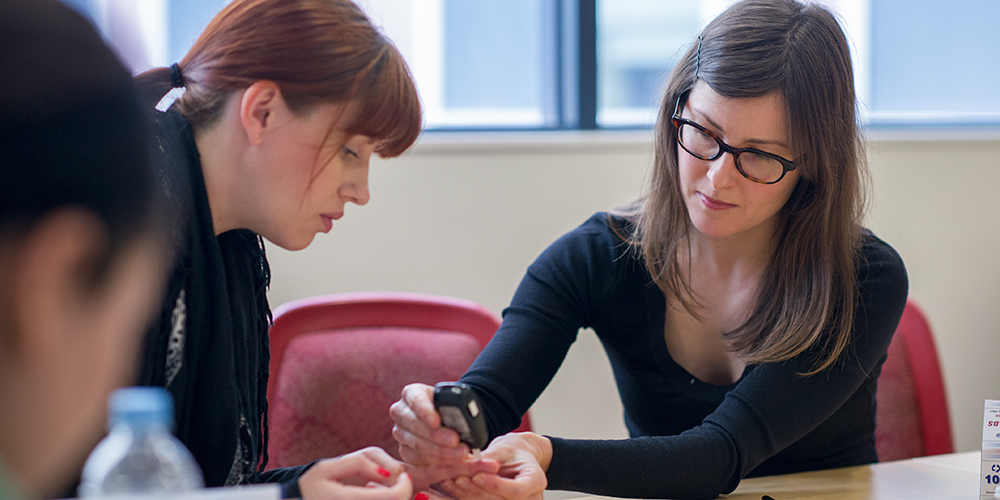
During National Diabetes Week (13-19 July) the focus is on raising the awareness and prevention of diabetes and at the Women’s it also allows us to put the spotlight on gestational diabetes.
While gestational diabetes is uncommon, there are a few risk factors to take note of which include:
- Pregnancy at an older age
- Family history of type 2 diabetes
- Being overweight
- Polycystic ovarian syndrome diagnosis
- Women from certain ethnic backgrounds (South Asian, Vietnamese, Chinese, Middle Eastern, Polynesian/Melanesian)
- Previous gestational diabetes diagnosis
- Previous birth complications
There are many health issues associated with gestational diabetes, including the fact that both the mother and baby will have an increased risk of developing type 2 diabetes later in life.
During the pregnancy, gestational diabetes can lead to excessive sugars and fats crossing the placenta, which can have an effect on the baby’s growth, usually making them bigger. Giving birth to larger babies can also lead to problems with the birth. Sometimes, even though it might not seem to make sense, some babies (particularly larger babies) are born with blood sugar levels that are too low – this is called hypoglycaemia.
During pregnancy women are generally offered a Glucose Challenge Test and Glucose Tolerance Test to assess whether they have elevated blood sugars and their body responds to glucose.
If you are diagnosed with gestational diabetes the condition can be managed through a good diet and proper monitoring. The Women’s Diabetes Clinic is specifically designed for the management of women with pre-gestational diabetes.
When is it open?
The Diabetes Clinic is open every Monday and Wednesday mornings. It caters for pre-pregnant and pregnant women with Type 1 and Type 2 and Thyroid conditions and "complicated" gestational diabetes mellitus, GDM (for example diagnosed before 18 weeks gestation). All other GDM's are seen in the general antenatal teams. All women diagnosed with GDM are seen by a diabetes educator first before going to their antenatal clinic.
Diabetes Educators work Monday to Friday from 8am to 4pm and can be contacted on 83452153. More information on this site about gestational diabetes.